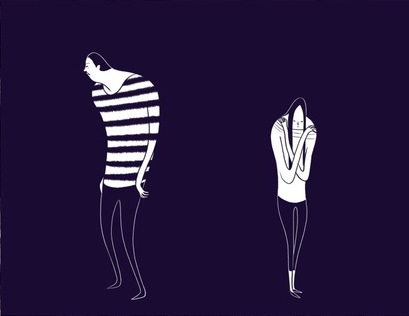Relapse and Job Loss

*This post originally appeared on our Member Site blog, where experts respond to members’ questions and concerns. To take advantage of our current special offer and get full access to the Allies in Recovery eLearning program for families, click here.
“The remainder of 2018 was tough for our son, but he managed to get 2 jobs. He has no car (the one we bought for him was “repossessed” by us), so he walks or skateboards to his jobs. I thought things were ok, even though it is a constant struggle for him to make ends meet and live on his own.
Then, this past Sunday, he relapsed. Two days later, he is in withdrawal and can barely keep it together, crying and overemotional. I’m afraid he’s going to lose another job.”
Dominique Simon-Levine reassures this mother that relapse and job loss are unfortunately often part of the recovery process
Your son abuses benzodiazepines, a type of drug used to treat anxiety. This medication calms people down and is frequently abused in conjunction with alcohol. Withdrawal from benzos can be dangerous. These and alcohol are the two drugs from which you can have seizures in withdrawal. Last time, you were able to get him into a detoxification program. Two days of use may not require this level of care. But I’d like to see him get a professional assessment, nevertheless.
Withdrawal from benzos is very, very uncomfortable. You feel like your chest is coming through your ribcage. You are anxious beyond belief and emotionally fraught. Calling in sick is the best thing to do in this situation. Unfortunately though, we all know of people who get fired for doing this once too often.
He may lose the job.
I am working with several families going through the same thing right now. The loved one relapses and the tenuous hold they have on housing, job, independence is all immediately threatened. Maybe the loved one enters treatment for the relapse but the family is then left petrified that all progress towards independence will be lost. Often, the family feels great pressure to pay the car loan or the rent and to keep everything in place.
What would happen if the family didn’t step in?
The job and housing would likely be lost. The CRAFT model would see this is as a natural consequence for relapsing (See Learning Module 6, available to our members). CRAFT would suggest that you get out of the way and let the chips fall where they will. Losing job and housing may signal to your loved one that the drug IS the problem and that help IS needed. The loss of job may give your loved one time to attend treatment. It may also make him more willing to go talk to someone. This could be the beginning of a serious attempt to address the addiction. You just don’t know…
On the flip side…
If the loved one goes into treatment right away as a result of the relapse, CRAFT might see financial help with rent, for instance, as support for treatment and as reducing the barriers into treatment. Is your son willing to get help right now?
I just this week spoke to a mom whose son is in treatment for a relapse. This will be the fourth time this year. Mom is exhausted. Each time her son’s world starts to crumble because of the drugs, she struggles with decisions around what to help with. Her son has learned this; mom is the go-to person. But she just can’t this time. It’s finally become too much.
We decided she would tell him she was exhausted and that she did not want to hear about every twist and turn, every piece of his life that was in danger of being lost. She would turn off her phone and only communicate through texts once or twice a day. We talked about building a bubble around HER, and protecting HER from the chaos, until such time as she is able to get her energy back. We reminded ourselves that her son did very well in a structured three-quarter house for close to a year, several years back. That losing everything helped leverage him into this housing situation.
There are no easy answers here
But these are the things to think about. Taking into account all of the factors at play, and maintaining a stance that supports your own well-being, requires an ability to stay in the present and accept what we don’t know and can’t control. There is strength that comes with this acceptance and grounding in the present. We all know how draining it can be to project our fears about the future, or our feelings about the past, onto the present moment. Often this ends up clouding our vision.
There are multiple angles from which to view this – and any – situation. There may not be a right or wrong answer for how to proceed. At least you can use these considerations to help frame your thinking about what possibilities are available as you decide what to do next. Remember, despite the intensity of the current situation that recovery is not a straight path. Each day is new.
Thank you for reaching out, and keep checking in as this process unfolds. We are here for you.
Illustration © Eleanor Davis
